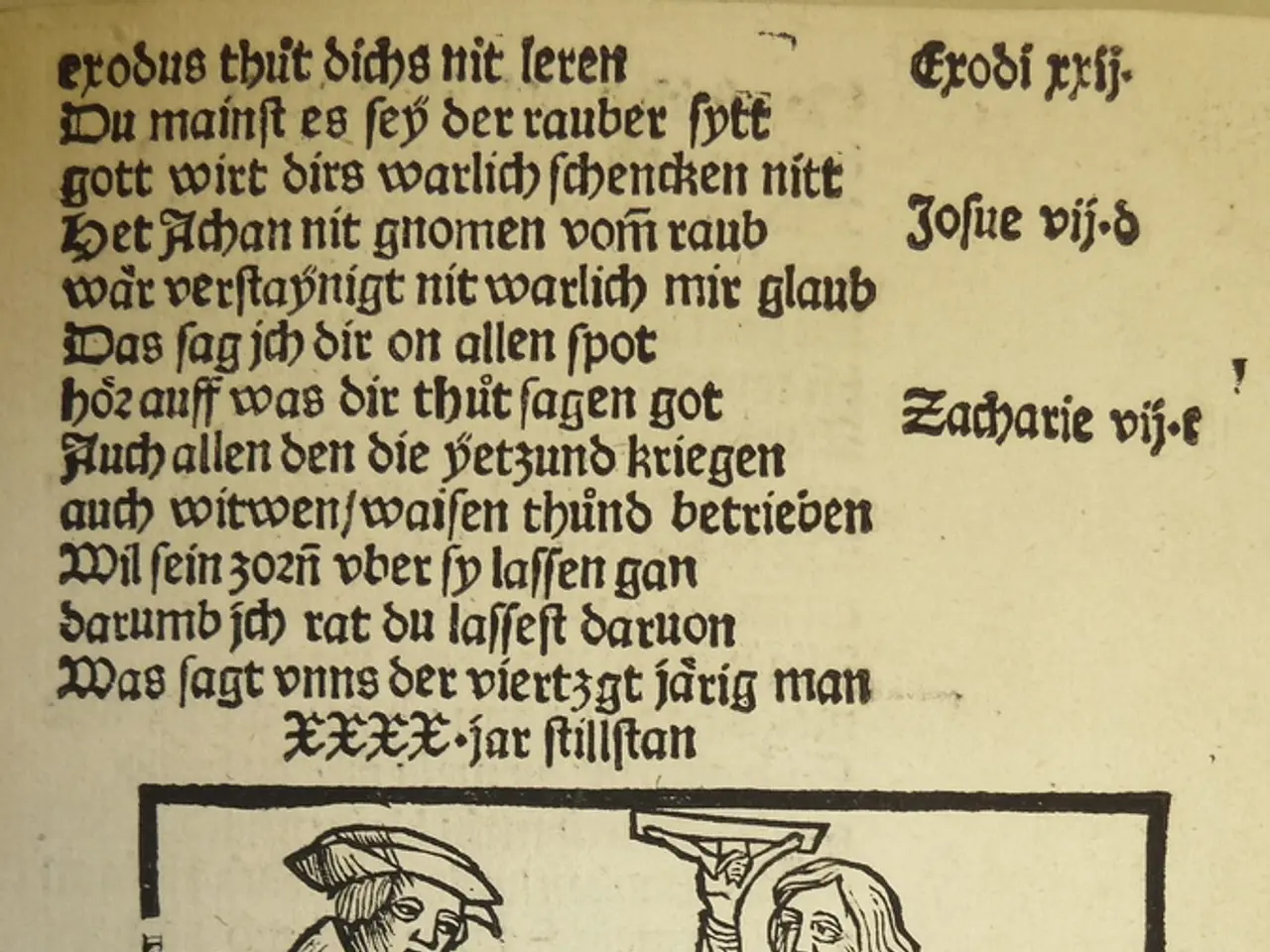To Improve the Readability of Academic Writing, Seek Advice from a High School Scholar.
The Demystifying Language Project (DLP) is a groundbreaking initiative that aims to make complex academic research on language and power more accessible to high school students, particularly those from linguistically and racially diverse backgrounds.
In 2023, the DLP organised a three-day writing workshop, bringing together 24 high school and undergraduate students with 12 established anthropology professors. The goal was to transform scholarly articles into engaging, readable pieces tailored for teenagers. This process, known as "transposition," is akin to changing the key of a song, making the research resonate with young readers' lives.
The workshop started with each team creating a 90-second "elevator pitch." The pitches included the main idea from the original article, research methods, an ethnographic story, and the "so what" message. This exercise was designed to foster student engagement with critical concepts about language and power.
Barbra Meek, another author, worked with undergraduate Sitara Vaidy on an essay critiquing harmful stereotypes of First Nations characters in Disney movies, titled "What Makes the Indian Sound Indian." The insights gained about language, culture, and power during the workshop came from efforts to dismantle educational hierarchies that are reinforced through language.
Athalia McCormack and Danna Rojas, two of the students, made a 90-second pitch about linguistic anthropology. Their pitch called for empathy and advocacy for undocumented students without relying on them to carry the burden of their experiences. The pitch was based on original research by Ariana Mangual Figueroa.
The final short essays that resulted from the workshop are now available as an open-access educational resource on the DLP website. These essays, including Meek and Vaidy's, will be used for critical language courses in the future, where students and teachers study the scholarship of linguistic anthropology and conduct research on their own language(s).
The DLP also believes that standardized curricula marginalize those who speak other languages or varieties of English. Sharese King, another author, analysed the trial of George Zimmerman, who was charged with killing Trayvon Martin, in her DLP essay about language and power in legal contexts. King's work examines how jurors largely disregarded the testimony of a key witness, Rachel Jeantel, because she used African American Language or "Ebonics" on the stand.
The Central American social justice concept of "accompaniment" inspired the workshop's activities, which aimed to flip traditional power dynamics and foster interactions where everyone brought their own expertise to the shared project. The DLP is co-directed by Ayala Fader, Lynnette Arnold, Justin A. Coles, Britta Ingebretson, Mike Mena, Johanna S. Quinn, and Bambi B. Schieffelin.
The DLP resources will be invaluable for educators who want to teach their students about the politics of language. The project not only educates students about linguistic power dynamics but also fosters skills in critical reading and writing that challenge linguistic hierarchies. The event was part of the Demystifying Language Project (DLP), a research and social justice initiative. The DLP aims to make scholarship on the politics of language available in public high schools.
On the second day, the students delivered their own versions of elevator pitches, receiving enthusiastic applause and appreciation. Athalia and Danna, the students who made a 90-second pitch about linguistic anthropology, were invited to tell the audience about their experience at the website's launch in May 2024.
The DLP believes that standard language is not inherently clearer or better, but rather the language of powerful institutions and people. Nelson Flores and Jonathan Rosa, two of the authors, chose to address readers directly in their DLP essay about bilingual students with the question, "How would you feel if someone told you that you didn't know any language?"
The Demystifying Language Project is a beacon of hope for students and academics alike, bridging the gap between complex academic research and the everyday lives of young people.
- The Demystifying Language Project's resources will be beneficial for educators who aim to teach their students about the politics of language, as the project not only educates on linguistic power dynamics but also fosters critical reading and writing skills that challenge linguistic hierarchies.
- The essays resulting from the DLP's workshop, such as Barbra Meek and Sitara Vaidy's critique of harmful stereotypes in Disney movies, can be categorized under science (linguistic anthropology), lifestyle (cultural examination) and education-and-self-development (critical thinking and empathy) when shared in a high school curriculum or self-study platform.




